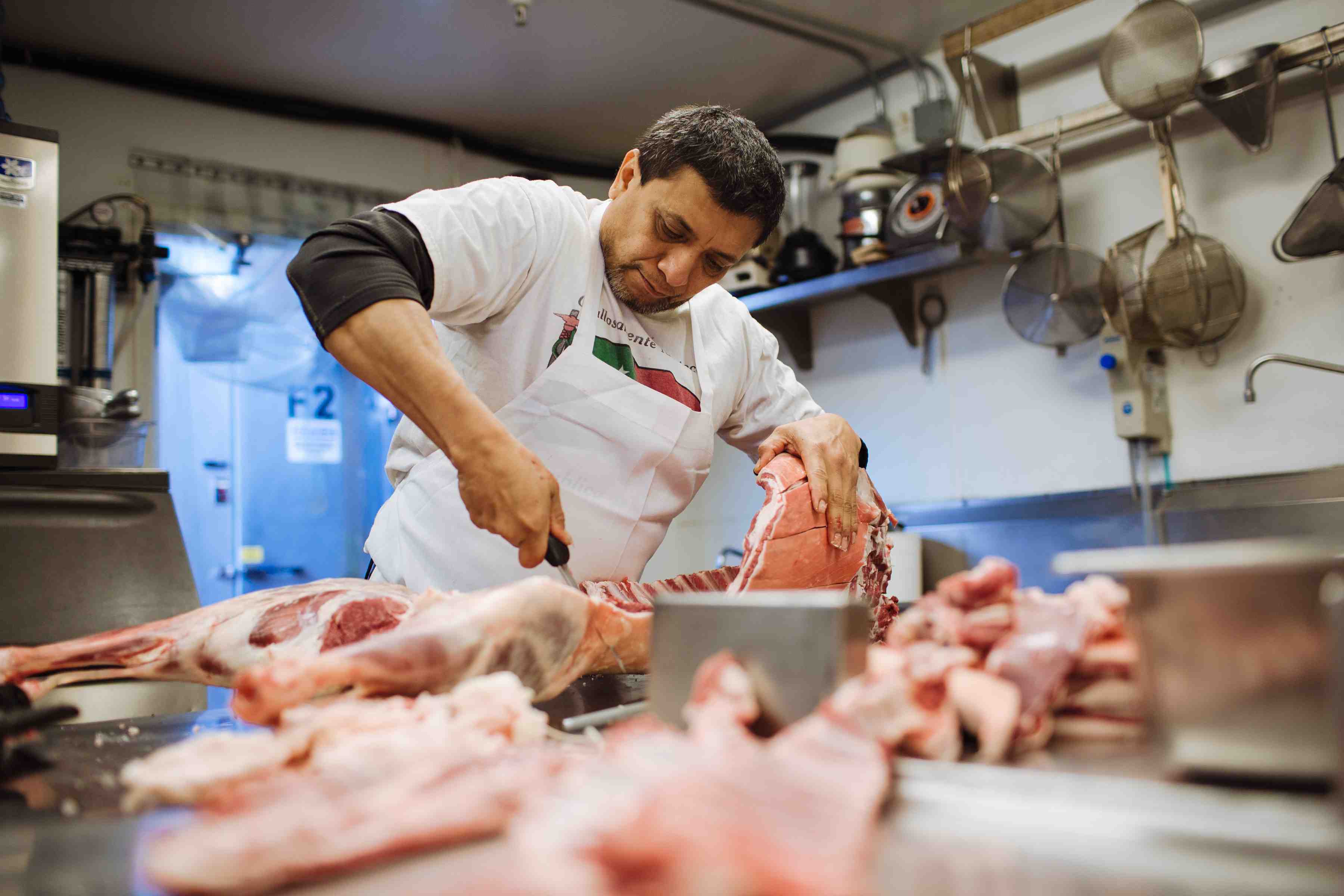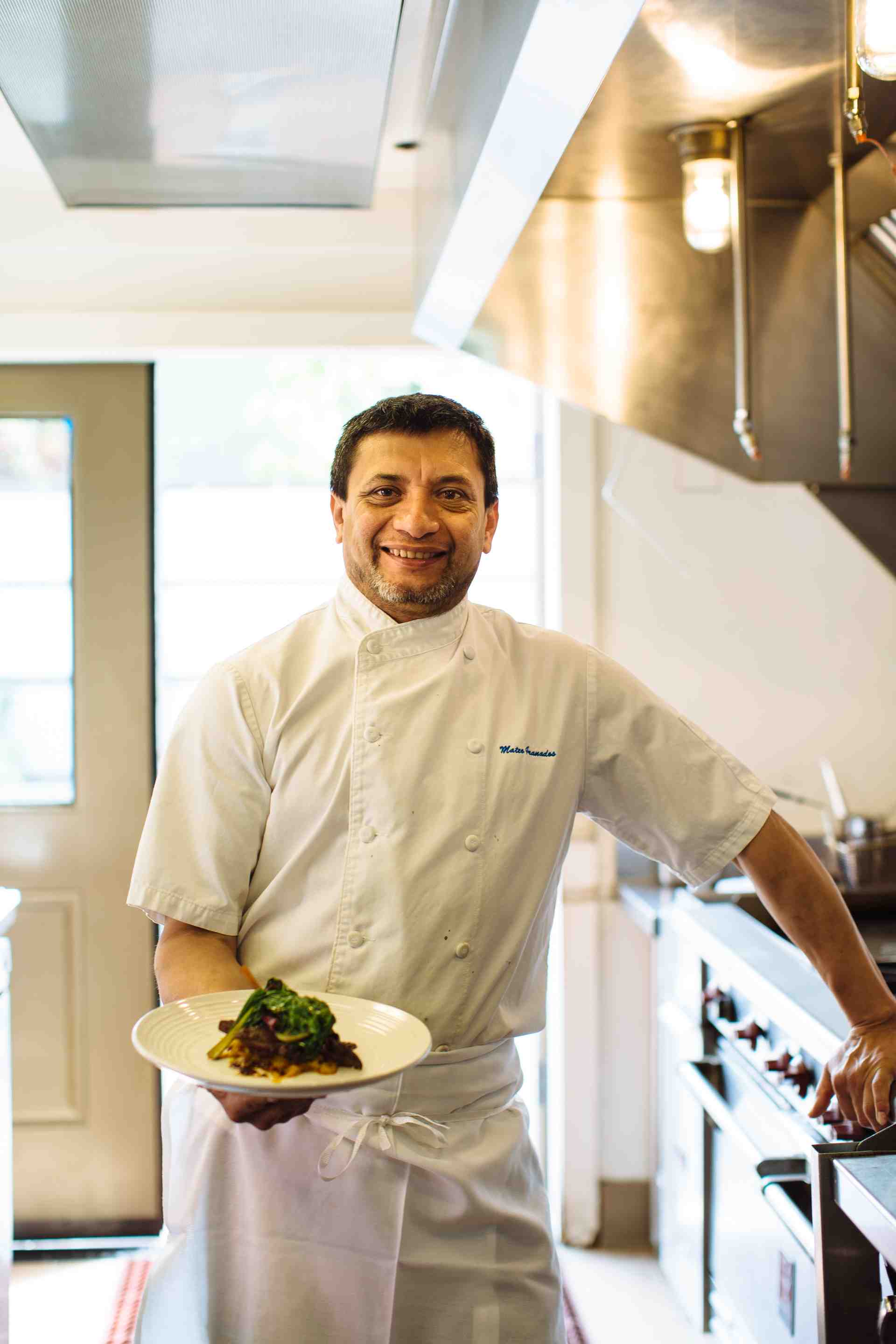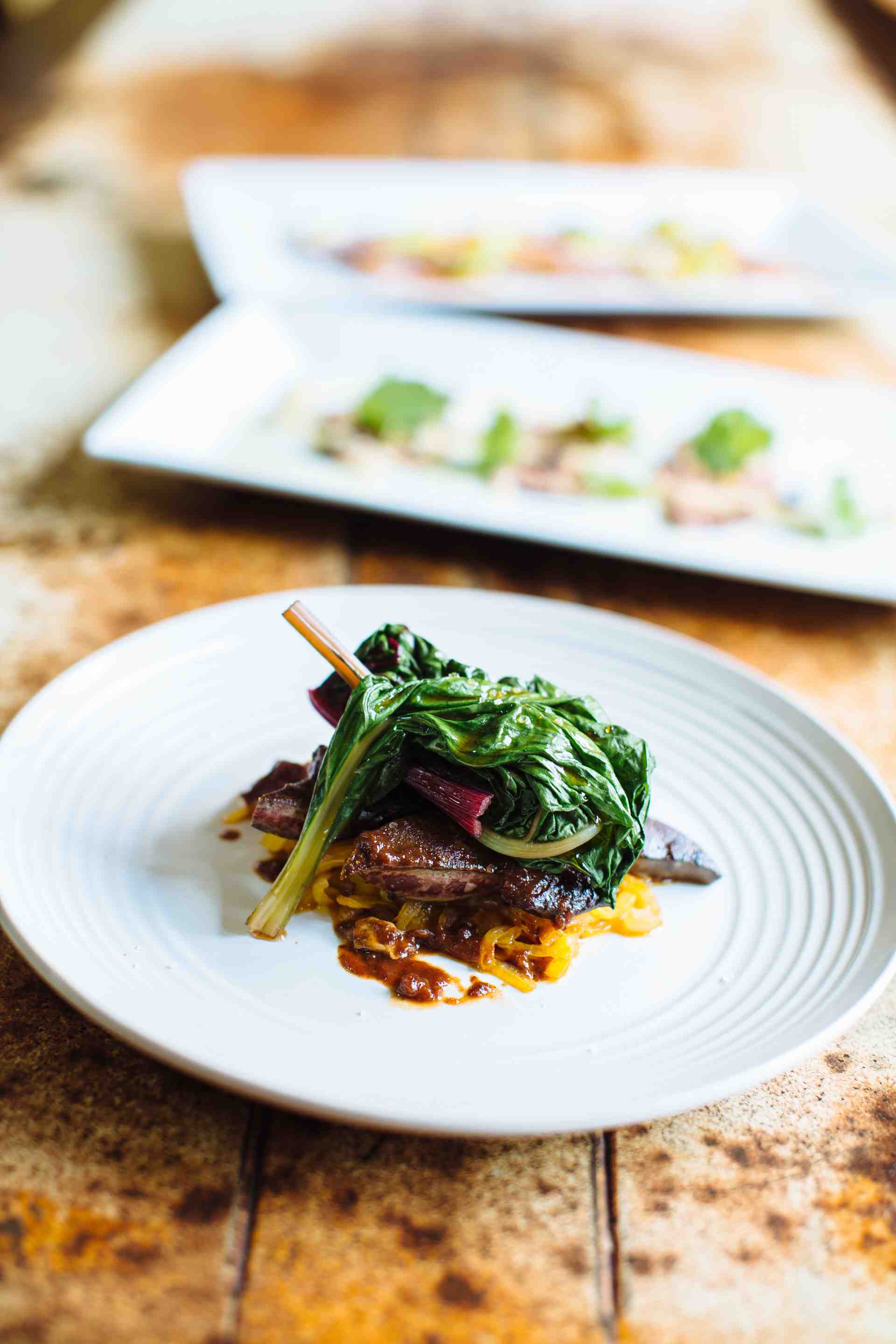Mateo’s Cocina Latina and the quest for true sustainability.
The Wild Forest chicken chicharrones at Mateo’s Cocina Latina could be dipped in something easy, like aioli. But chef Mateo Granados had some good, fresh brain on hand from breaking down lambs for his Healdsburg restaurant. And so the Yucatán born culinary artist did what he would have done in his homeland: he crafted the brain into a silky mousse, resulting in a savory, foie-like complement to the crunchy poultry skin.
Growing up in the Mayan heritage state on the southwestern tip of Mexico, Granados learned the importance of utilizing every aspect of an animal from his father, a prominent butcher shop owner with a small concrete stand in the downtown Oxkutzcab farmers’ market. It made economic sense for poorer shoppers, and Granados eventually discovered that, cooked correctly, offal parts rewarded with intense flavors and intriguing textures worthy of the most expensive meats.The Wild Forest chicken chicharrones at Mateo’s Cocina Latina could be dipped in something easy, like aioli. But chef Mateo Granados had some good, fresh brain on hand from breaking down lambs for his Healdsburg restaurant. And so the Yucatán-born culinary artist did what he would have done in his homeland: He crafted the brain into a silky mousse, resulting in a savory, foie-like complement to the crunchy poultry skin.
The French have long known this for their high-end cuisine—think sweetbreads, foie gras, and bone marrow. It’s not new for Granados, either, a decades-long nose-to-tail advocate who rigorously sources local and sustainable Sonoma County ingredients, infuses them with vibrant Yucatán flavors, and crafts his unique recipes using classic French techniques he learned at such legendary restaurants as the former Masa’s of San Francisco.
Yet this spring, the chef put the concept on a pedestal, introducing his Sustainability Menu, a seven-course meal where Cinta Cinesa pork lard is morphed into powder for a rich, mouthwatering finish to filet mignon, and potato is encrusted in Progressive Pastures beef bone marrow. Meat and potatoes, elevated—with every last ingredient celebrated.
“I’ve always used whole animals, but this is an evolution, more than just roasting a pig,” Granados says, his eyes bright with his signature energy. “A pig tail becomes a delicacy, braised and shredded and served on a plancha-grilled masa round as a cocktail bite.”
Working in his narrow, glass-framed kitchen overlooking the back patio of his bustling eatery, Granados treats animals with a deep respect for their happiness until it’s their time for the plate. He partners with local farmers, and often slaughters the animals personally, using the gentle, seconds-quick approach his father taught him, not only so that stress adrenaline doesn’t taint the meat, but because it’s the kind thing to do.
A single Preston lamb is architecture deconstructed. When such standard cuts as ribs have been glazed in Serrano chile honey, fried in housemade pork lard, and eaten—shoulder blades are slow braised in ancho chile and lots of red wine, the meat pulled for enchiladas. The animal’s neck and bones are slow-braised to become a sumptuous, powerful stock, and even the strained liquid leftovers go into a big pot to be reduced into ancho demi-glace for drizzling atop enchiladas. Every part is used and transformed.
“Many people—and certainly my customers who support my cooking style—are open to eating anything these days,” Granados says. “Beef heart actually sells really well.”
So the lamb’s journey continues, with the heart grilled, skewered, and glazed in earthy oregano demi. The liver is sliced with the grain for tenderness, soaked in milk, plancha-grilled, and presented on a bed of onion, golden raisins, and saffron. Brain gets poached in vegetable stock with aromatic herbs before being pressed flat, breaded, fried, and served with a tomato caper sauce. The head, too, is slow-braised for hours, and fashioned into a terrine finished with brown butter-sage-beef demi-glace.
“I hope to show that really using and respecting the whole animal can be done,” Granados says. “It’s a lot of work, but it’s a labor of love that runs in my blood. And hopefully, it will draw
people away from mass-produced meats toward more small production, humanely treated animals.”
Granados does similar whole-body salutes with beef, lamb, chicken, and fish, as well as vegetables. Rainbow chard flavors stocks, and more leaves are steamed and served alongside fish tossed with microplaned lemon skin, Morning Dew olive oil, sea salt, and a bit of tart, high-acid Kokomo Zinfandel verjus. Then, the chard roots are manicured for a dainty, flavorful garnish on ceviche.
“I’ve had to think, ‘How am I going to make this animal or plant really work for me financially?’” Granados says. “But it’s even more important to work with small farmers and properly honor their products.”
And that it’s truly delicious is all the better joy. Customers are supporting the idea, not just with their taste buds but with their flexibility. His popular cut-of-the-day rotates based on which part of the animal is in his utilization process, so it might be tenderloin or braised neck.
“People shouldn’t expect to always get a rack of lamb when they come to my restaurant,” he says. “That’s part of the adventure and what makes it all sustainable. It really is about appreciating what is available right now.”



